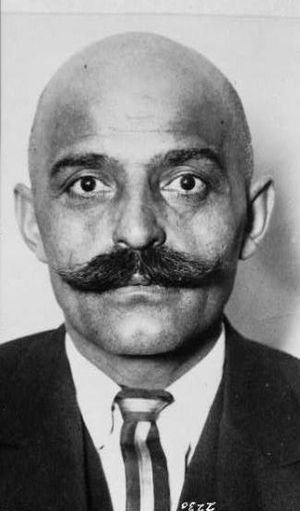
“Without struggle, no progress and no result. Every breaking of habit produces a change in the machine.”
Share this quote:
“Laughter relieves us of superfluous energy, which, if it remained unused, might become negative, that is, poison. Laughter is the antidote.”
Share this quote:
“Self-observation brings man to the realization of the necessity of self-change. And in observing himself a man notices that self-observation itself brings about certain changes in his inner processes. He begins to understand that self-observation is an instrument of self-change, a means of awakening.”
Share this quote:
“We must strive for freedom if we strive for self-knowledge. The task of self-knowledge and of further self-development is of such importance and seriousness, it demands such intensity of effort, that to attempt it any old way and amongst other things is impossible. The person who undertakes this task must put it first in his life, which is not so long that he can afford to squander it on trifles.”
Share this quote:
“A sin is something which is not necessary.”
Share this quote:
“A considerable percentage of the people we meet on the street are people who are empty inside, that is, they are actually already dead. It is fortunate for us that we do not see and do not know it. If we knew what a number of people are actually dead and what a number of these dead people govern our lives, we should go mad with horror.”
Share this quote:
“Every ceremony or rite has a value if it is performed without alteration. A ceremony is a book in which a great deal is written. Anyone who understands can read it. One rite often contains more than a hundred books.”
Share this quote:
“A man is never the same for long. He is continually changing. He seldom remains the same even for half an hour.”
Share this quote:
“In every age men have tried to assemble all the knowledge and experience of their day into a single whole which would explain their relation to the universe and their possibilities in it. In the ordinary way they could never succeed. For the unity of things is not realisable by the ordinary mind, in an ordinary state of consciousness. The ordinary mind, refracted by the countless and contradictory promptings of different sides of human nature, must reflect the world as manifold and confused as is man himself. A unity, a pattern, an all-embracing meaning - if it exists - could only be discerned or experienced by a different kind of mind, in a different state of consciousness. It would only be realisable by a mind which had itself become unified.”
Share this quote:
“Knowing who in fact we are results in Good Being, and Good Being results in the most appropriate kind of good doing. But good doing does not of itself result in Good Being. We can be virtuous without knowing who in fact we are. The beings who are merely good are not Good Beings; they are just pillars of society.”
Share this quote:
Religion is doing; a man does not merely think his religion or feel it, he lives his religion as much as he is able, otherwise it is not religion but fantasy or philosophy.
Share this quote:
A man can only attain knowledge with the help of those who possess it. This must be understood from the very beginning. One must learn from him who knows.
Share this quote:
In properly organized groups no faith is required; what is required is simply a little trust and even that only for a little while, for the sooner a man begins to verify all he hears the better it is for him.
Share this quote: